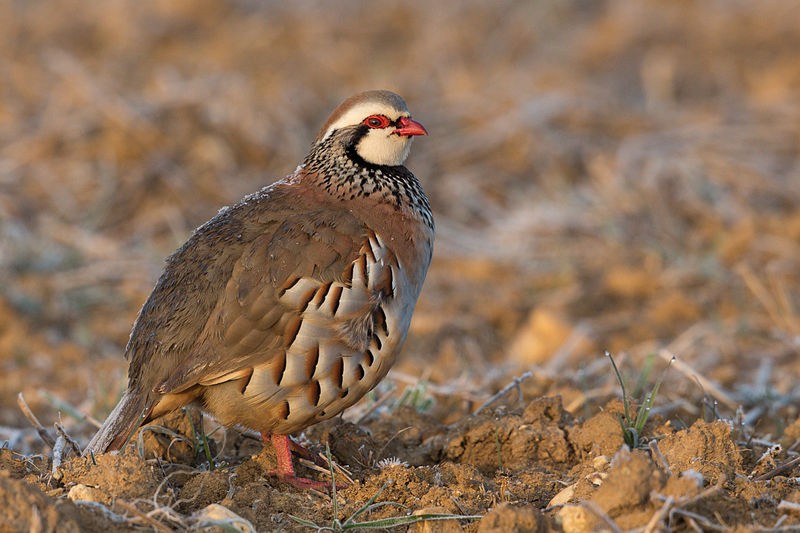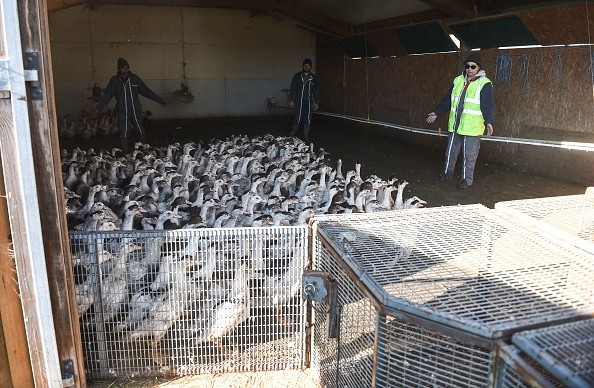Calls to prevent a "catastrophic" avian flu pandemic by outlawing the discharge of gamebirds. The release of captive-bred birds on October 1 poses a risk to the UK's wild bird population this winter, according to the RSPB.
Expressing Concerns

Conservationists have urged politicians to forbid the release of millions of gamebirds to save the UK's wild birds from being wiped out by a "catastrophic" bird flu pandemic this winter.
As of October 1, there was a high risk; according to the Royal Society for the Protection of Birds (RSPB), pheasants, partridge, and ducks released for hunting might spread avian influenza to wild bird populations, causing havoc among farming and garden birds.
It also expressed concern that the UK government didn't risk assessments for a significant epidemic involving gamebirds. It advised the Department for Environment, Food, and Rural Affairs to immediately halt the release of new gamebirds.
UK's Gamebirds
The UK's gamebird production equals half the biomass of all the wild birds in the world. The highly deadly H5N1 virus strain has already decimated several sea birds and goose populations in Scotland, BBC Scotland has learned from experts at the Scottish Wildlife Trust (SWT).
Since 2021, the virus has been found in pheasants in England, Wales, and Scotland at least nine times in both wild and domesticated flocks.
The head of policy at RSPB UK, Jeff Knott, stated that it is imperative to exercise prudence. It would be too late if the virus took hold in industrial pheasant shoots and spread throughout the ecosystem.
The consequences of doing nothing, he said, "may be devastating, which is why we are advocating for this now." "We know the ease and speed with which this virus might propagate. It may get terrible.
Avian Flu Spread

Senior government wildlife specialists disagree with the RSPB's claims, claiming that there is insufficient data to support its requests at this time. However, some authorities believe Defra took too long to respond to the epidemic.
If H5N1 spread among gamebird flocks, Defra said it would consider a shooting restriction. It also stated that the discharge of gamebirds in avian influenza control zones was already prohibited.
Last winter, the UK implemented extensive biosecurity precautions for chicken farms to stop its spread. As the virus spread throughout Scotland, where politicians gathered a multi-agency task force, seabird nature areas were shut down. Additionally, it has been found in sea eagle chicks, foxes, otters, and other animals.
The British Association for Shooting and Conservation (BASC) said last month that a lack of French chick supplies had resulted in numerous game estates canceling or reducing their shootings this autumn.
The head of game and gundogs at BASC, Glynn Evans, accused the RSPB of "political grandstanding" and unaware of how the virus behaves. The primary role shooting plays in the countryside, he claimed, and the RSPB "had failed to produce a single piece of evidence to back their argument."
Taking Actions
To ensure that all required steps are taken to minimize the spread of avian flu, Defra, the devolved governments, and a wide variety of stakeholders have been working closely with BASC and other members of the shooting industry.
Considering how little is known about the transmission of bird flu, Dr. Mark Avery, a former director of conservation for the RSPB who is now with the Wild Justice campaign group, said: "It makes no sense to unleash tens of millions of captive-bred birds into the countryside for shooting. They pose an unneeded hazard to domestic and wild birds alike.
Related Article : Record Breaking Bird Flu Outbreak Hits the UK
For more Animal news, don't forget to follow Nature World News!
© 2025 NatureWorldNews.com All rights reserved. Do not reproduce without permission.





